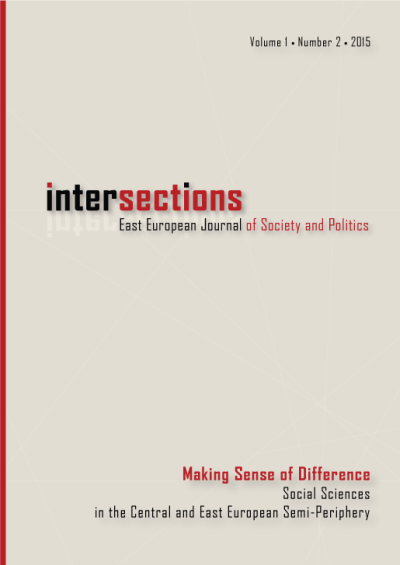Can the Post-Soviet Think?
Can the Post-Soviet Think?
On Coloniality of Knowledge, External Imperial and Double Colonial Difference
Author(s): Madina TlostanovaSubject(s): Social Sciences, Geopolitics
Published by: MTA Társadalomtudományi Kutatóközpont Kisebbsegkutató Intézet
Keywords: post-Soviet; coloniality of knowledge; imperial and colonial difference; disciplinary implosion; epistemic racism
Summary/Abstract: The article considers the main challenges faced by the post-Soviet social sciences in the global configuration of knowledge, marked by omnipresent coloniality. In disciplinary terms this syndrome is manifested in the social sciences versus area studies divide from which the post-Soviet is either excluded or equalized with postcolonial discourses. The situation can be described as a general invisibility of the post-Soviet space and its social sciences and scientists for the rest of the world and the refusal of the global North to accept the post-Soviet scholar in the capacity of a rational subject. The reasons for this complex intersection of the post-Soviet, postcolonial and other post-dependence factors are both internal and external, political and epistemic. Following the methodological principles of decolonial option the author analyses such specific elements of the post-Soviet stagnant configuration in knowledge production as the external imperial difference and the double colonial difference, the geo-politics and body-politics of knowledge the way they are reflected in the knowledge production and distribution, paying specific attention to possible ways out of this epistemic dead-end.
Journal: Intersections. East European Journal of Society and Politics
- Issue Year: 1/2015
- Issue No: 2
- Page Range: 38-58
- Page Count: 21
- Language: English

